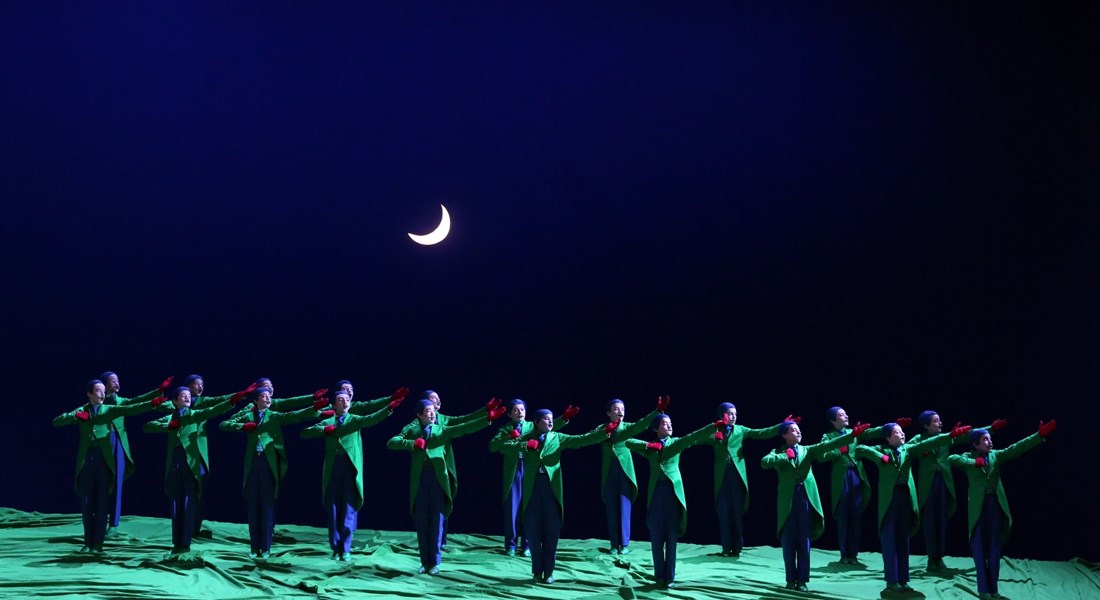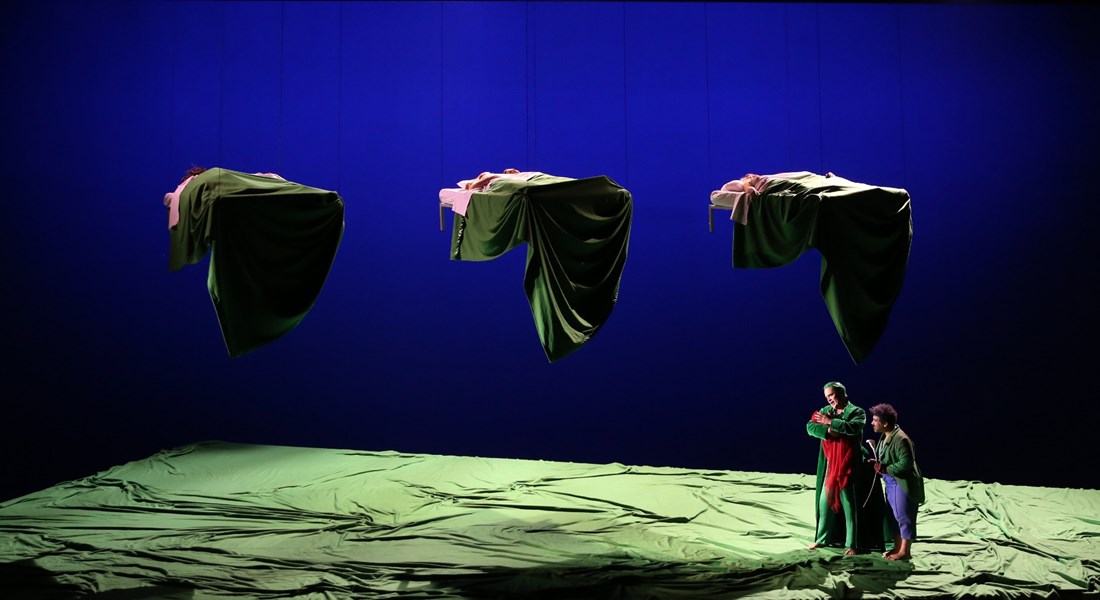Posted31 Jan 2019
- In
A Q&A with Robert Carsen
What was the inspiration behind this interpretation of A Midsummer Night’s Dream?
The inspiration was to try to create as magical a production as we could without resorting to creating a so-called real fake forest on stage, with real fake trees and real fake foliage. So, it was to create a visual metaphor for the forest. There’s an incredible amount of sleeping, of dreaming, of waking, of nightmares in the text and of course it’s about young people discovering love, and the difficulties of love and sex. The whole thing has got quite frank sexual overtones, as so much of Elizabethan theater had, so the metaphor of a bed seemed a very good one, and various beds, and because beds are good for sleeping and for dreaming and for having nightmares and making love.

How does Britten’s music enhance Shakespeare’s words?
Benjamin Britten’s interpretation is totally brilliant. First of all, the libretto, every single word of it except for six words is Shakespeare. Only six words in the libretto are not Shakespeare, which is a line that Lysander has where he says, “compelling thee to marry with Demetrius,” talking to Hermia. Apart from that, everything is Shakespeare and it’s a wonderful, wonderful setting of the text and understanding of the text. It’s also a setting where you can mostly understand everything that’s being sung, ideally. There have been many, many operas that are based on Shakespeare plays––Verdi famously wrote three of them–– but I think this is almost the only one where every word is Shakespeare, except the six I mentioned.
This staging has been performed for 28 years now. What do you think it is about the production that resonates with audiences?
We call it 28 years young, rather than 28 years old. We didn’t build in a sell-by date by setting it at this place or this time. It’s called A Midsummer Night’s Dream, and dream is an important word, so we’ve properly created something that allows the audience to dream and to explore irrational things to a certain degree, but it’s also delightful and funny. I’m not really the right person to ask that question, because I don’t want to compliment our own work, but we’re very glad we’re still able to do it. And I’m very, very fortunate to have my wonderful assistant, who was with me on the first production of this, Emmanuelle Bastet, who is still able to restage this for us, which is also one of the reasons these revivals come up so incredibly well. It’s wonderful to have the person who was originally with you still doing it because it’s not just about knowing what it is, but the essence of it and what we were trying to do in the first place. And way back in 1991 I asked the comparatively unknown young choreographer Matthew Bourne to do the choreography of the kids, and we know what a success his work has become in the meantime. And a wonderful design by Mike (Levine) – it was a wonderful team we had and still have.

What does it mean to you to finally have your Midsummer premiering in the U.S.?
For me, it’s North America. I’m Canadian; Michael Levine and I are both from Toronto and we always actually wanted to bring it to Canada. We haven’t quite managed that, but we’re very happy it’s in Philadelphia. I think the North American audiences really respond to Britten’s music theater and it’s probably the first time it’s been performed in Philadelphia, and I think the audiences seeing this for the first time are in for a fantastic treat. It’s better-known in the United Kingdom, this production has been done maybe five times at English National Opera, whereas this is the first. I would love to be there and see how the audience responds.
Q&A with Robert Carsen from the program for A Midsummer Night's Dream, February 8–17, 2019
Leave your comment below.

 Facebook
Facebook Twitter
Twitter More
More